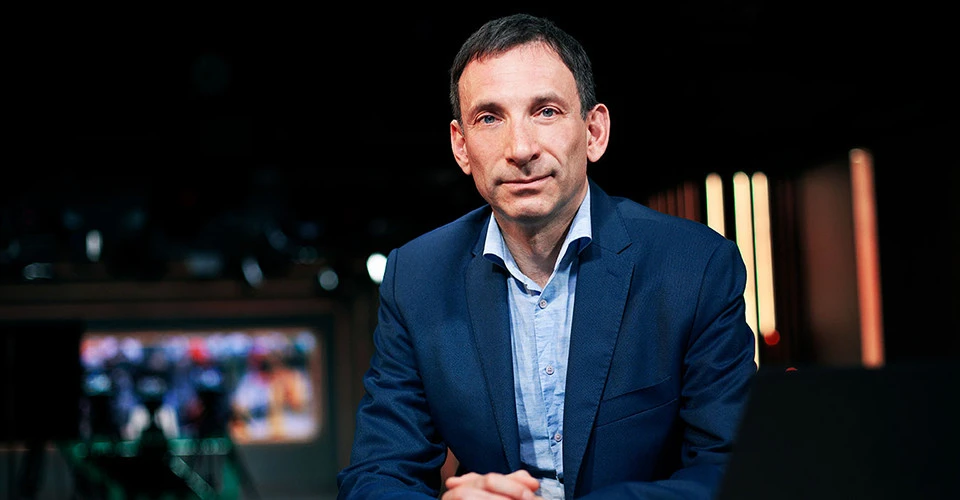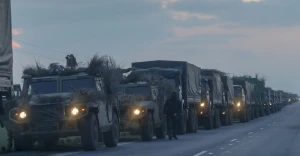
Russian troops are dying near Avdiivka – journalist Vitaly Portnikov
According to Ukraine's General Staff data, Russian losses in the Avdiivka assault have significantly increased: their military equipment losses are up by 40%, and fatalities among their troops have doubled
Despite these losses, the Russians are continuing to launch new offensives near Avdiivka. These attacks seem to follow the tactics used by Soviet commanders during World War II. Russian troops are sent in waves towards Ukrainian positions. When a wave is wiped out by Ukrainian defenders, the Russian generals prepare and send in another wave without reassessing their strategy.
Today, it's clear that the Russian offensive near Avdiivka has been repelled. However, this hasn't deterred the Russian military command from planning further attacks in the same area. Even if these efforts yield little success and result in substantial losses of Russian soldiers and equipment, they seem determined to press on against Ukrainian defenders.
Why is the Russian military command insisting on this? The reason is clear: they are not satisfied with the current progress of the “special military operation.” Vladimir Putin reportedly gave his generals a directive to gain full control over Donetsk and Luhansk regions of Ukraine by the New Year. Putin believes that such control would enable him to consider a future peace agreement with Ukraine, allowing him to regroup forces for potential offensives into other Ukrainian territories.
Putin's ambitions to establish "Novorossia'' in Eastern and Southern Ukraine and to set up a puppet government in Kyiv, which would eventually lead to Ukraine's inclusion in a Russia-Belarus union state, remain unchanged. The Russian president is merely postponing these plans until his military can occupy a substantial portion of Ukrainian territory, including Kyiv, and establish a puppet government.
So, why does Putin need more than just a continuous missile attack on Ukraine and combat with the Ukrainian Armed Forces to weaken their mobilization potential? It's because Putin requires time to amass a significant arsenal and to mobilize a substantial number of Russian troops. This is necessary for his ultimate goal of destroying Ukrainian statehood and removing Ukrainians from their lands. To make these genocidal plans a reality, Putin seeks a ceasefire on his terms. This involves addressing the cessation of hostilities, ensuring Ukraine doesn't join NATO, and obtaining guarantees from the US and Western countries that would deter any future Russian aggression against Ukrainian territory.
Putin believes he can negotiate terms with the West that primarily favor Russia over Ukraine. He's striving to escalate the conflict on a global scale, which could lead to new wars in various regions. However, before any talks on a ceasefire with Ukraine can begin, Russia must show that it has achieved its stated objectives for the “military operation” and can halt its actions in Ukrainian territory.
To achieve this, Putin needs at least one critical condition met: full control over Donetsk and Luhansk regions. It's important to note that last February, the Russian president recognized the self-proclaimed Donetsk and Luhansk “People's Republics,” created after the 2014 occupation of parts of Donbas, within the borders of these Ukrainian regions.
Now, after 20 months of the bloody war between Russia and Ukraine, Russian forces have yet to attain even this formal objective that Putin used to justify the war. Time is running out for the Russian president, as Russian resources are dwindling. Mobilizing Russian citizens for a prolonged war against Ukraine isn't that easy.
The Russian defense industry might not work as well as Putin and his friends hope. Ukraine is receiving new Western weapons, and missiles like ATACMS can seriously limit Russia's ability to fight in Ukraine.
This is why Putin acts like previous Soviet leaders. He gives his generals tasks to complete, usually with deadlines. November 7 or January 1 – it doesn’t really matter. However, Russian generals, like many in authoritarian systems, often don't consider the real military consequences. They just follow orders from their incompetent leaders. This approach, in any situation or country, usually leads to defeat and significant equipment and manpower losses. This is evident in the Avdiivka area, which has become a symbol of how the Russian military command is following outdated Soviet tactics in this war.
About the author. Vitaly Portnikov, journalist, Shevchenko National Prize laureate
The editors do not always share the opinions expressed by the blog authors
- News












































